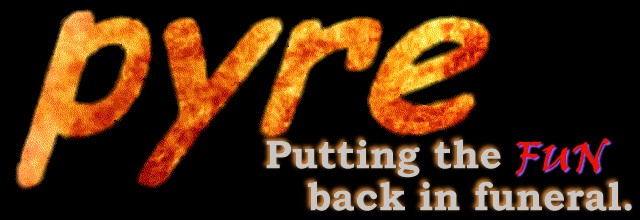These are just things I write, okay? Sometimes they're profound insights
or funny stories and I'm really proud of them. Other times it's mindless
rhetoric that I've since completely changed my mind about and am ashamed
of. But most of the time it's just words.

Today's Fun
Do you want to help support this nonsense?
 Recent Fun:
Recent Fun:
(03/17/05)
(03/14/05)
(03/08/05)
(03/02/05)
(02/27/05)
(02/21/05)
(02/18/05)
(02/14/05)
(02/12/05)
(02/08/05)
(02/03/05)

Good Monkey, Bad Monkey
A Treatise on Simian Morality
I have been known to use Monkey-based terminology as praise or denigration on a sort of value scale. Most people have simply chalked it up to my fondness of monkeys in general, and as part of a larger overall habit of working ways to say "monkey" more often in my day to day speech. This is not the... well, not entirely the case. There is a deeper meaning to it, one which I shall now attempt, and likely fail, to explain.
A few examples. On days like today, where I meant to write pretty much all day but kept wandering off, finding distractions, or otherwise wasting what could be productive time, I am wont to say "I'm a bad monkey." When another driver happens to get out of the passing lane just as I am approaching, unknowingly making way for me to continue on my way, I may grace them with a (generally unheard) comment of "Good monkey!" as I zoom by.
What is the similarity? Intent and conscious thought. More specifically, a complete lack of either. The monkey is our eneducated, instictive self. I am a lazy monkey: without conscious act of will and persuasion by the higher brain functions, I will not do much of anything. Left to my own devices, without deadlines or external requirements, I will pretty much sit around. I do not mean to be, I did not decide to be, but I am. Oh, at times I get a lot done, build up a good head of inertia and just keep going. But the higher brain functions had to create a reason, a goal, and often a self-reward to get that to happen. The monkey wasn't involved in that, it's lazy. Some people are funny monkeys. They make you laugh without necessarily trying; it just comes naturally. The monkey is what comes naturally.
So what about Good and Bad? When I say I'm a bad monkey, it doesn't mean I'm inherently bad. It means that my natural qualities weren't helpful for a specific scenario. I'm a Bad Monkey when I goof off all day and don't do my writing. I'm a Bad Monkey when I blurt out something horrible that pisses off one of my friends. Likewise, when I call someone else a Good Monkey, it rarely means that I think they're inherently wonderful. Far from it. It typically means that they've done something I like without thinking of it. The driver who gets out of my way didn't do it to be nice to me, they just did it. Sometimes "Good Monkey" is said slightly condescendingly, in which case I'm crediting the monkey state of being because I don't think the subject is actually capable of reasoned, conscious thought.
The ideal of the monkey in my mind is like the Taoist concept of Wu Wei, Doing Without Doing. It is not inaction, it is your most natural action. It is unplanned. It is spontaneous. It is true action. Sometimes it is sitting in the shade. Sometimes it is swinging from a branch. Always, it is Monkey.



